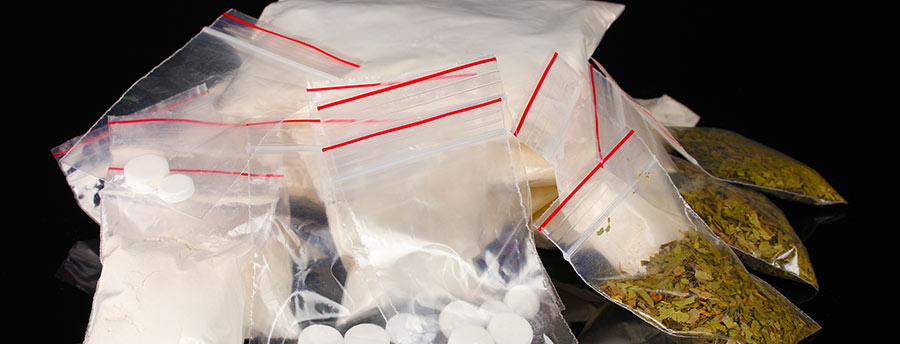What is RDAP?
The Residential Drug Abuse Program allows federal prison inmates to seek early release by participating in and completing drug and alcohol treatment and education.

RDAP in the Bureau of Prisons
The Residential Drug Abuse Program (RDAP) program in the federal prison system (Federal Bureau of Prisons) attempts to educate federal inmates on the various methods of becoming and staying sober. It is one of the most intensive of any prison-based programs. The government believes that if inmates can refrain from drug use, they will pose less of a threat of future criminal activity and will be better inmates while still in prison. There is no Michigan state prison RDAP program.
Prison employees involved with Residential Drug Abuse Program (RDAP) are highly trained and are trained continuously as new theories and treatment tactics are developed worldwide. The treatment program includes education about preventing relapse, job training, mental and physical health education and treatment, and familiarization with adjusting to a healthy, crime and drug-free lifestyle. In short, the RDAP’s goal is to return inmates to society in as good a position as possible so that they will have the basic positive skills necessary to adjust to their re-entry into society smoothly and successfully.
How Much Time Drops off a Prison Sentence for Completing RDAP
The maximum reduction for completing the Residential Drug Abuse Program (RDAP) depends on the imposed sentence.
- 30 months or less – Sentence reduced by six (6) months.
- 31-36 months – Sentence reduced by nine (9) months.
- 37 months or more – Sentence is reduced by 12 months

Effectiveness of the Residential Drug Abuse Program (RDAP)
Studies have shown that the all-volunteer Residential Drug Abuse Program (RDAP) has produced excellent results in line with its goals. The 500-hour, 9-month, 3.5-hour-per-day program is available to inmates in prison for at least that long. In addition to learning valuable, perhaps life-saving skills, some inmates in RDAP who successfully graduate from the program are given a 1-year reduction in their sentences.
RDAP is composed of three individual stages. The first is the 500-hour program described above. In the second stage, the inmate has graduated from the first stage but is still in prison. In this second stage, RDAP personnel understands that being in the general prison population is a high-risk situation for the inmate. Accordingly, the stage-one graduates are monitored carefully, and RDAP provides follow-up treatment sessions and activities.
The third stage of the Residential Drug Abuse Program (RDAP) is after the inmate has been released to a halfway house or confined to a private home. This stage is known as the Transitional Drug Abuse Treatment (TDAT). During this stage, the released inmate will attend group therapy sessions in which groups typically are composed of other RDAP graduates.

How Does an Inmate Get Into RDAP?
As can be imagined, many inmates would like to get into Residential Drug Abuse Program (RDAP). This fact caused a considerable waiting list of thousands of inmates. In 2009, the qualifications for admission into RDAP were altered and significantly tightened, and now it is far harder to get into the program. Only about 10% of inmates who want to get in are admitted. So, the waiting list issue has been “resolved,” but only because fewer inmates are now eligible.
It is essential to know that specific documentation (a doctor’s diagnosis, repeated drug or alcohol-related convictions, documented withdrawal episodes, etc.) must end up in possession of the RDAP screeners for an inmate even to be considered for the program. All applicants must have some official medical diagnosis for a substance use disorder, a “substantiated diagnosis for a substance use disorder.” Alcohol is considered a “drug” for purposes of RDAP. You do not have to be a convicted drug dealer or user to get admitted. Certain crimes will automatically disqualify an inmate, but if you have not committed one of those offenses (murder, arson, rape, kidnapping, etc.) and you are a documented, habitual substance user, and are within 48-60 months of release, you are eligible. There is no “right” to be admitted.
Can a Lawyer Help Get Me Into the Residential Drug Abuse Program (RDAP)?
Yes, if you have the right lawyer. But even with a federal judge’s order to place you into RDAP, the Bureau of Prisons will ignore the order if your documentation does not establish that you have a substance use disorder. Inmates have headed off to serve their sentence, believing that their paperwork or the crime they were convicted of would be satisfactory to get into the Residential Drug Abuse Program (RDAP). Many inmates have been met with a regrettable surprise when they get to prison and are told that they are not eligible because the documentation of their substance use was either missing, incomplete, or inaccurate.
Some attorneys naively wish to downplay their clients’ drug and alcohol issues, thinking it will help get a lighter, less demanding sentence. Therefore, often a court file and presentence report will miss valuable information about addiction that could greatly assist a person in getting into RDAP. Ironically, attorneys unfamiliar with the rules regarding RDAP admission sometimes fight quite hard to keep addiction-related documentation out of the case and the all-important case file. RDAP screeners rely heavily on the case file to determine whether to admit someone to RDAP.
LEWIS & DICKSTEIN, P.L.L.C. Can Help You!
Why switch to LEWIS & DICKSTEIN, P.L.L.C.? If you’ve lost confidence in your current federal defense lawyer, it might be time to switch to someone who will faithfully and vigorously fight to protect and defend you. Our lawyers have decades of experience representing clients charged in federal court. We have an unparalleled track record of successfully helping clients facing severe charges and avoiding the potentially devastating consequences of a conviction.

Federal Criminal Defense Attorneys in Michigan
An astute, well-seasoned criminal defense attorney will understand that substance addiction should actually be emphasized in some cases. For instance, if an attorney knows that the client will do significant time in prison and has a substance abuse history, they should do everything possible to get as much documentation of the substance abuse issue into the case file and the presentence report.
The dedicated, experienced, and zealous federal defense attorneys at LEWIS & DICKSTEIN, P.L.L.C. have the knowledge and expertise necessary to handle a case according to the client’s best interests, including laying the foundation for a smooth transition into programs such as the Residential Drug Abuse Program (RDAP).
Call us today at (248) 263-6800 for a free consultation or complete an online Request for Assistance Form. We will contact you promptly and find a way to help you.












